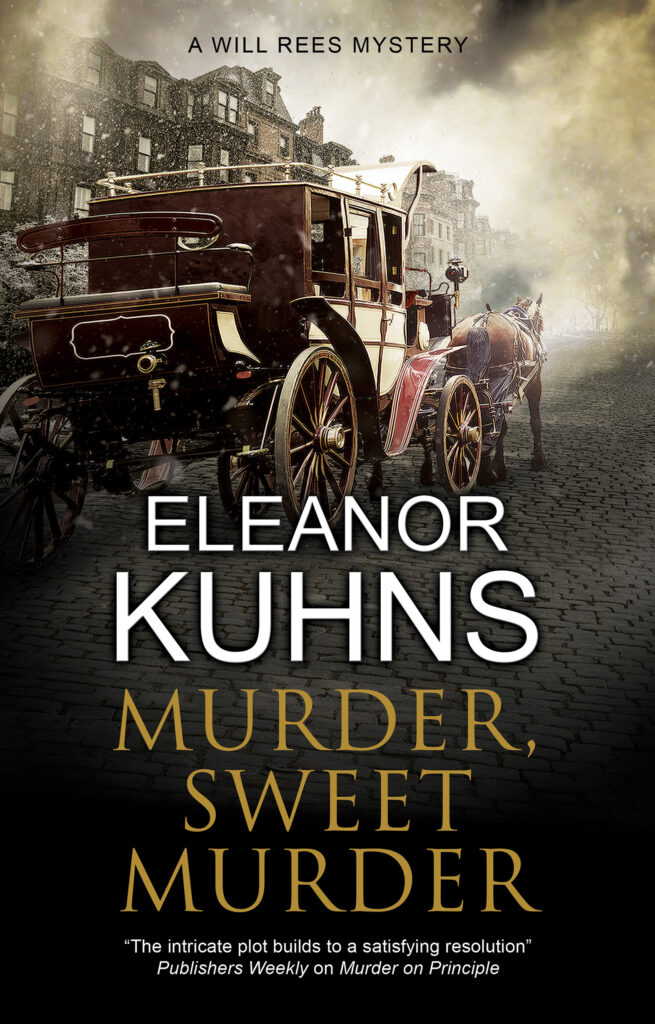As I looked around the table at Christmas dinner, and saw people who had not spoken to one another for years, I thought of how complicated families could be.
In Murder, Sweet Murder, I set the mystery against Lydia’s family, but Will Rees’s is no less difficult.
Lydia, estranged from her father and step-mother, left her family years ago. Her father is a wealthy Boston merchant engaged in the Triangle Trade. He owns a distillery that distills molasses into rum as well a fleet of ships that run slaves from Africa.
Lydia cannot accept her father’s profession and after some problems in her personal live, runs away. She lands at Zion, a Shaker community in Maine. In Murder, Sweet Murder I bring her back to Boston, and her family. She is no more tolerant of her father’s profession now than she was then.
Rees’s father was an abusive alcoholic who died by falling off a wagon in a drunken stupor. Rees is not an alcoholic but he makes other mistakes with his children. Before the action begins in A Simple Murder, David, Rees’s oldest son runs away from home, and takes refuge in Zion with the Shakers. Rees had left David (he would say his father abandoned him) with Caroline and her husband. When Rees returns home and recovers the farm, sending Caroline’s family packing, she never forgives him.
In A Devil’s Cold Dish, Caroline does her very best to destroy her brother and his family.
As the stories go on, and Rees’s history unfolds, his family expands. But it also changes. By the time of Murder, Sweet Murder, Jerusha, Rees’s oldest daughter, wants to leave home for school. David and Simon have already left for a farm in a distant town.
Families are complicated, even in fiction.

